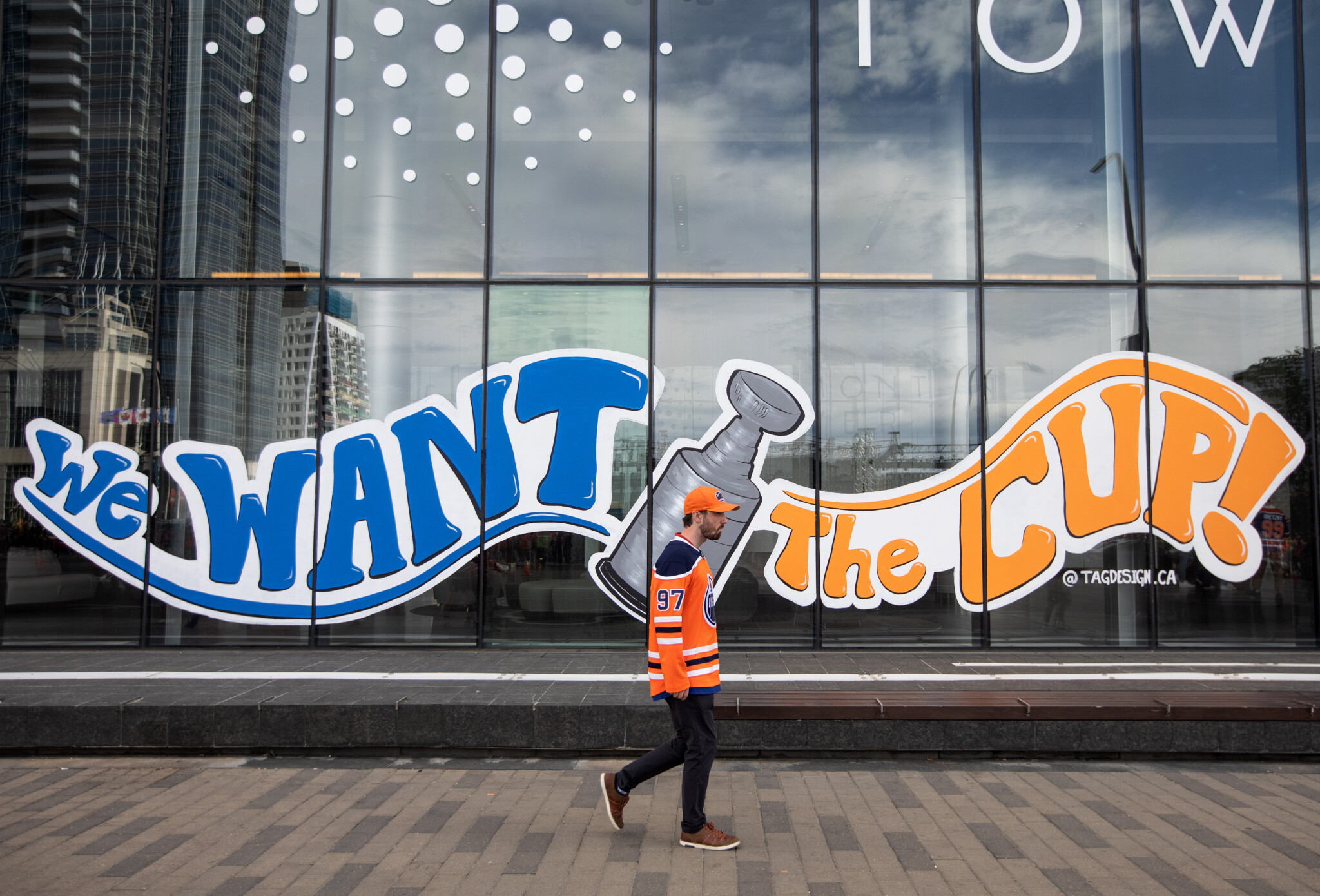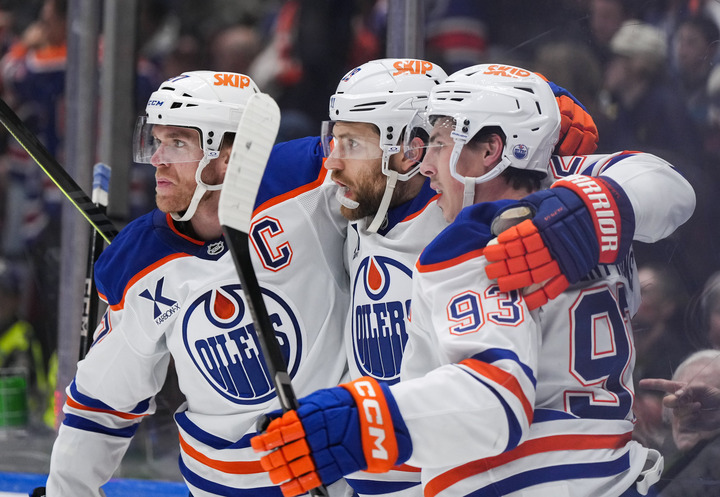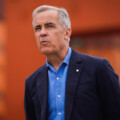If we wish to preemptively pout before a potential poor playoff result, might we point out that the three American teams in the NHL semi-finals have the benefit of constructing their rosters in economically advantageous markets, and that this gives them quite the competitive edge? To wit: A $5 million U.S.-salaried player would pay about $1 million CAD in Alberta provincial income taxes to play for the Edmonton Oilers, $224,500 U.S. for the Carolina Hurricanes, and nothing in Texas for the Dallas Stars or Florida for the Panthers.
Exactly how does that not tilt the ice? Where are our premiers offering relocation incentives?
With that out of the way, let’s further lament because…then there was one. Only one. Remember, five of the seven Canadian teams started the 16-team playoffs. Two rounds and 30 days later, rejoice is subdued but due, because with Edmonton as the sole survivor, it confirms the country’s best post-pandemic team is its best post-season one and the greatest hope to bring the Stanley Cup back to Canada after 32 years.
The Edmonton Oilers sport the world’s best player (Connor McDavid), and another arguably in the top three (Rocket Richard-winner Leon Draisaitl), and will need both to play their best hockey ever against stacked opposition in the West—and if successful, then in the East.
McDavid was last seen dispatching the Americans in overtime at the Four Nations Face-Off. He is without peer on the planet, not because he is physical—in the rough-housing hockey sense, at least—but intellectual in his gift to create and/or anticipate play as Gretzky did. He accelerates faster than an EV, and I’ve seen professional opponents actually fear and turtle upon his incursion into their territory.

Edmonton Oilers fans make their way to watch the game in Edmonton, June 24, 2024. Jason Franson/The Canadian Press.
Draisaitl, meanwhile, could likely put one in blindfolded (at least on me, a beer-league goalie) and take for granted the ability to score—left-handed, right side—from a 10-degree angle. It is as if the net swivels toward him when he one-times it. When they are both confidently in gear, nothing we know can stop them—the challenge is for both to be on their games at once.
Even to get to the finals, the Oilers now need to repeat their Western Conference final victory last year over Dallas Stars, who added a marquee forward at the trade deadline (Mikko Rantanen), and whose goaltender (Jake Oettinger), was better in these last two weeks than the acknowledged best between the pipes this season (Winnipeg’s Connor Hellebuyck). Edmonton dispatched Vegas in five, and their regularly criticized goaltender (Stuart Skinner) found his game after his replacement was injured. At times, he doesn’t so much fight the puck as the entire sport, and he sure cannot afford now to lose his groove.
If the goaltending isn’t a sieve, there is much to like about the Oilers. They are both excellent up top with retained high draft choices—McDavid, Draisaitl, Evan Bouchard, Ryan Nugent-Hopkins—and a handful of free agents like sniper Zach Hyman (a Maple Leaf refugee), and also deep, with what can best be described as character players like Evander Kane, Connor Brown and the poster child for chronic nastiness, Corey Perry, who just turned 40 and has never met a goal crease he did not wish to turn into a UFC ring.
What’s more: they’re mainly Canadian, with, by my count, 20 of them on the roster.
But winning 16 games makes the Stanley Cup a difficult crown, and if they repeat as the Western Conference champs, the Eastern Conference beckons as no easy-peasy anti-climax. The Panthers probably have the depth to be strong at waterboy, and all under-the-radar Carolina does is make us remember we forgot about them. Edmonton had to once again get past Los Angeles in the first round, and the Kings are very much like the Panthers in their physicality and disciplined system. Vegas was a skilled team with surprisingly little bite. Dallas is built for the playoffs: large, deep (on paper, at least, if not in practice), and well-coached. Be surprised if this series goes less than six games.
A post-script: what can be shouted about the Toronto Maple Leafs that hasn’t been screamed before? Library shelves could overflow with psychoanalyses of post-season foibles.
Its collapse against Florida—up 2-0 in the series, ahead 3-1 late in game three only to lose in overtime, ending twice, no less, in 6-1 losses at home, a seventh straight game seven playoff choke, I could go on—was hardly unpredictable, but still egregious to witness as an annual Canadian ritual. It is for fans like trying to stop a subscription with no cancel button, cleaning out behind the fridge to dispose of the long-dead mouse, or assembling IKEA furniture after the dog has eaten the instructions. A cruel 2025 twist was how nemesis Brad Marchand and Panthers (and former Leafs) coach Paul Maurice expressed sympathy, giving a new meaning to bad winners.
I got to know the newish Maple Leaf Sports & Entertainment (MLSE) CEO Keith Pelley at TSN a quarter-century ago, and I doubt his decisive penchant has disappeared. He wasn’t brought to MLSE to focus on Maple Leaf merch sales; he came to deliver championships (plural) to the only NHL team among the world’s most valuable 50 franchises. The Leafs tried to create a supergroup in recent years—Auston Matthews, Mitch Marner, William Nylander, and John Tavares can singularly carry any team—but ought to settle for just being a great band. Better to be the Stones than Velvet Revolver, so a retooling is imminent. Let’s get in touch again in five years.
The Oilers chase history; the Leafs chase ghosts. This week, both unite the country.









